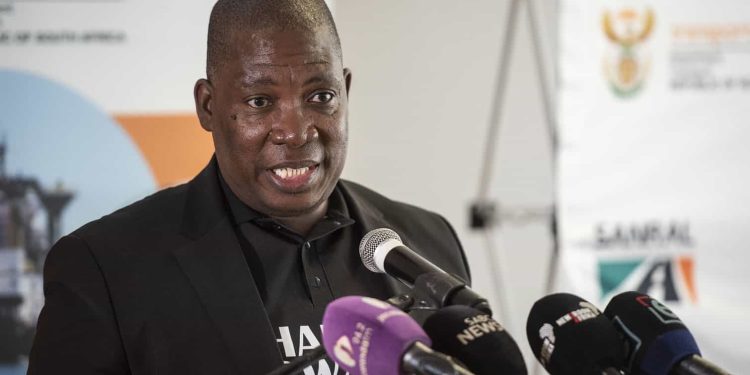The spectre of former president Jacob Zuma continues to cast a long shadow over the African National Congress (ANC) as he presses forward with what appears to be a personal crusade—either to dismantle the party that once catapulted him to power or to seize control of it once again. Zuma’s influence is creating mounting tensions within the ANC’s upper echelons, as insiders suggest fear of his sway is paralyzing the party’s ability to act decisively against Gauteng Premier Panyaza Lesufi, who has openly defied Luthuli House with scathing criticism of the Government of National Unity (GNU).
According to ANC sources, there is a growing concern that any action taken against Lesufi, who is emerging as a rebellious figure, could result in his defection to Zuma’s new uMkhonto weSizwe (MK) party, a move that could potentially siphon away critical ANC support in Gauteng. This fear is perplexing to some within the party, considering that Gauteng under Lesufi’s leadership performed poorly in the recent May polls, second only to the Western Cape in losing voter support for the ANC. Despite this, party leaders worry that a defection could further weaken their political standing in the province.
Zuma’s continued influence within the ANC, and his alliances with figures such as the Economic Freedom Fighters (EFF) and some disgruntled elements within his former party, is not an unfounded fear. His criticism of the GNU as a betrayal to “white monopoly capital” has resonated with a growing faction that could be described as a “coalition of the wounded”—those who have been sidelined by the ANC or have faced legal consequences.
This faction represents a blend of populists, political outcasts, and individuals with a grievance against the current ANC leadership, and Zuma’s rhetoric taps into their dissatisfaction. Should Lesufi align with Zuma and this movement, the implications for the ANC could be significant. Lesufi, despite his current criticisms, has his eyes set on higher political ambitions, including the ultimate prize of the presidency. His future political alignment, whether with the ANC or MK, remains uncertain, but his departure would represent a significant coup for Zuma’s fledgling party.
While it remains to be seen whether Lesufi would find a comfortable home in the MK party, given his apparent desire to ascend to the Union Buildings, the ANC’s reluctance to act against him highlights a deeper fear of Zuma’s enduring capacity to destabilize the party from within. As the political landscape continues to shift, the ANC leadership must confront not only internal dissent but also the growing threat of defections to Zuma’s camp, which could fracture the party and alter South Africa’s political future.
In the midst of these internal struggles, the ANC finds itself caught between holding its ground and avoiding actions that could fuel further divisions. The fear of Zuma’s resurgence is a reminder that, even outside of formal power, he retains a powerful hold over both party politics and the wider political narrative in South Africa.






















